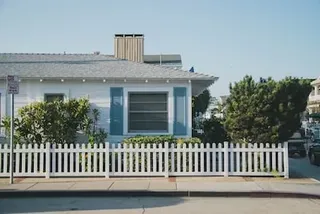What Is The Difference Between Squatting And Trespassing In Washington?
In Washington State, squatting is defined as the intentional occupation of another person’s property without permission or legal right. This means that a squatter has no legal claim to the property they occupy and are liable for damages if they remain there.
On the other hand, trespassing is different because it involves entering onto someone else’s property without authorization or consent, but with no intention to remain on the land. In Washington State, trespassers can face criminal and civil penalties if caught.
Therefore, squatting involves a more serious violation than trespassing as it requires an individual to remain on someone else’s property without their permission. Both violations are considered illegal in Washington and can result in harsh consequences; however, squatters are more likely to bear the brunt of any legal action taken against them due to their prolonged stay on another person’s land.
How Does Adverse Possession Work In Washington?

In Washington State, the process of adverse possession is a legal mechanism that allows an individual to gain title to land owned by another person. This process involves occupying the property for a certain period and meeting certain conditions to acquire title eventually.
For someone to acquire title through adverse possession in Washington, they must prove that they have been occupying the land for at least seven years and that they have been openly and notoriously exercising exclusive possession over the property during this period. Additionally, they must demonstrate that their occupation was hostile and under a claim of right or color of title, meaning that they believed that they had some sort of legal right or ownership.
Furthermore, claimants must pay all taxes on the property during the seven-year period and must possess it in good faith without interruption from the rightful owner. If these criteria are met, an individual may gain title to land through adverse possession in Washington State.
What Are The Requirements For A Squatter To Claim Adverse Possession?
In Washington State, a squatter may be able to gain legal rights over property through adverse possession. To be successful in their claim, the squatter must meet certain requirements.
Firstly, they must have possession of the property for an uninterrupted period of at least ten years and be in exclusive possession during that time. The squatter must demonstrate that they have made visible and substantial improvements to the property and also that they have paid any applicable taxes or fees on the land.
Additionally, their possession of the property must be open and notorious, meaning that it is obvious to neighbors or nearby residents that the squatter is living in or otherwise using the land. Finally, to successfully gain adverse possession rights over the land in Washington State, a squatter must show evidence of good faith belief that they own it.
How Can You Evict A Squatter From Your Property In Washington?

Evicting a squatter from your property in Washington can be a complicated process, and it is important to understand the laws governing squatter rights in the state before taking any action. You should contact an attorney specializing in real estate law to discuss your options and help guide you through the process.
Generally speaking, depending on the circumstances of a particular case, you may need to file a lawsuit with the court if a verbal notice or written warning does not convince the squatter to leave. In addition, you may be able to obtain an injunction from the court ordering the squatter to leave immediately.
You must also ensure that you can prove ownership of your property and have given verbal or written warnings before filing suit. It is also important to note that using physical force or threats of violence against a squatter can constitute criminal activity and result in serious legal consequences for yourself.
As such, it is important to always work within the confines of the law when trying to remove squatters from your property in Washington State.
What Rights Do Squatters Have In Washington?
Squatters in Washington State have several rights that are protected under state law. These include the right to occupy a property if they have been living on it for at least seven years, the right to remain on the property even after an owner has filed an eviction notice, and the right to be notified of any court proceedings related to their occupancy of the property.
Squatters also have the right to be treated as tenants, meaning they cannot be removed from the property until they are given proper notice or have gone through a legal process. Additionally, squatters may claim title to a property if they can demonstrate that they have paid for improvements made on it or prove that the owner abandoned or neglected it for many years.
Finally, squatters in Washington State may also benefit from specific protections provided by local ordinances which can provide them additional rights not found in state law.
Do Squatters Need To Pay Property Taxes In Washington?

In Washington State, squatters are not liable for property taxes; however, they must adhere to certain rules and regulations to remain on the property without being removed.
Squatters must show that they have been occupying the property openly and continuously for a period of at least one year before they can be considered as having established a claim of adverse possession.
This means that it is important for squatters to be aware of their rights and obligations when it comes to paying taxes on the property, including understanding what types of taxes may apply and how long they must remain on the property before any tax liability arises.
Squatters should also be aware of any additional laws or regulations that may affect their ability to occupy the property legally and should consult with an experienced attorney if they have any questions about their rights and obligations regarding taxation.
How Can You Protect Your Property From Squatters In Washington?
One way to protect your property from squatters in Washington is to ensure that all occupants are legally authorized to occupy the premises. This can be done by including a clause in the rental agreement stating that tenants must have permission from the landlord before allowing any other individuals to occupy the space.
Additionally, it’s important to be aware of Washington State’s laws regarding squatter’s rights; for example, if a tenant has resided on the premises for at least 12 continuous months and has made improvements or paid rent during that period, they may be able to claim legal possession of the unit. Property owners should also consider having locks installed on any vacant units, as this provides an additional layer of security and prevents unauthorized entry.
Finally, it is highly recommended that all property owners contact local law enforcement immediately if they suspect squatters are occupying their property without authorization.
How Can You Get Rid Of Squatters In Washington?

If you have squatters on your property in Washington state, it is important to understand the relevant laws and take action as soon as possible. The most effective way to remove squatters from your property is to file an Unlawful Detainer action with the court, allowing for a judge to order the removal of the squatter.
You must prove that the squatter has no legal right to be on your property, such as proof of ownership or a lease agreement. In some cases, you may be able to use self-help methods such as changing locks or posting notices on your property; however, it is important to ensure that these actions are within the bounds of the law and do not risk harm or violence against the squatter.
Additionally, if you find yourself in a situation where squatters live on your property without permission, it is important to act quickly by consulting an attorney and taking legal action to protect your rights and reclaim your property.
Are Holdover Tenants Considered Trespassers In Washington?
In Washington State, it is important to understand how squatters’ rights, or holdover tenants, are treated. Generally speaking, a squatter is defined as an individual who enters another person’s property without permission and remains on the property without the owner’s consent.
In Washington State, this can be considered trespassing, as there are laws that protect landowners from unwanted inhabitants. As such, if a squatter has been living in someone else’s rental property for longer than the rental agreement states without paying rent or having permission from the landlord, they may be considered trespassers.
Washington also has specific laws governing eviction proceedings, including information about removing squatters from the premises. It is important to understand all of these legal requirements before attempting to evict a squatter so that you do not inadvertently break any laws or put yourself at risk of being sued by a squatter for wrongfully evicting them.
Additionally, it is important to note that squatters may retain certain rights even after being evicted. It is essential to understand these rights when dealing with holdover tenants in Washington State.
What Is Color Of Title And Does It Apply To Squatters In Washington?

In Washington State, squatters may be subject to the Color of Title doctrine, which is a legal principle that applies to real estate law. It allows someone who has had a property for an extended period and has made improvements to it or paid taxes on it to gain title even if they are not the rightful owner.
The doctrine states that if the squatter can show that they had a good faith belief that they were the actual owners due to their actions, then they may have a claim to the property. In Washington, Color of Title must be established by clear and convincing evidence and include proof that there was no fraud involved.
This means squatters must prove that their occupation was done in good faith and not through any sort of deception or misrepresentation. If Color of Title cannot be established, squatters typically have no legal rights over the property occupied.
Is An Agreement With A Squatter Enforceable Under Law In Washington?
In Washington State, there is no specific law governing squatting, and the legality of it varies depending on the owner’s rights. The laws that are in place can be complex and difficult to interpret.
Generally, a squatter may have some legal rights if they have occupied the property for a significant period and met certain criteria. An agreement between an owner and a squatter may be enforceable under certain circumstances, but it is important for both parties to understand the laws relevant to their situation before entering into any agreement.
In most cases, if an owner wishes to evict a squatter, they must go through the legal eviction process rather than using self-help measures such as locking them out or changing door locks. Furthermore, while squatters may not be able to claim ownership of a property they are occupying without permission, they might be able to argue adverse possession in court if they have lived on the property long enough and met all other legal requirements.
These findings apply to all cities in Washington including Seattle, Tacoma, Everett, Yakima, Bellevue, Kirkland, Des Moines, Bellingham, Vancouver, Spokane, and more!

![Sell My House For Cash [market_city]](https://image-cdn.carrot.com/uploads/sites/25870/2022/04/Sell-My-House-For-Cash-WA.jpg)